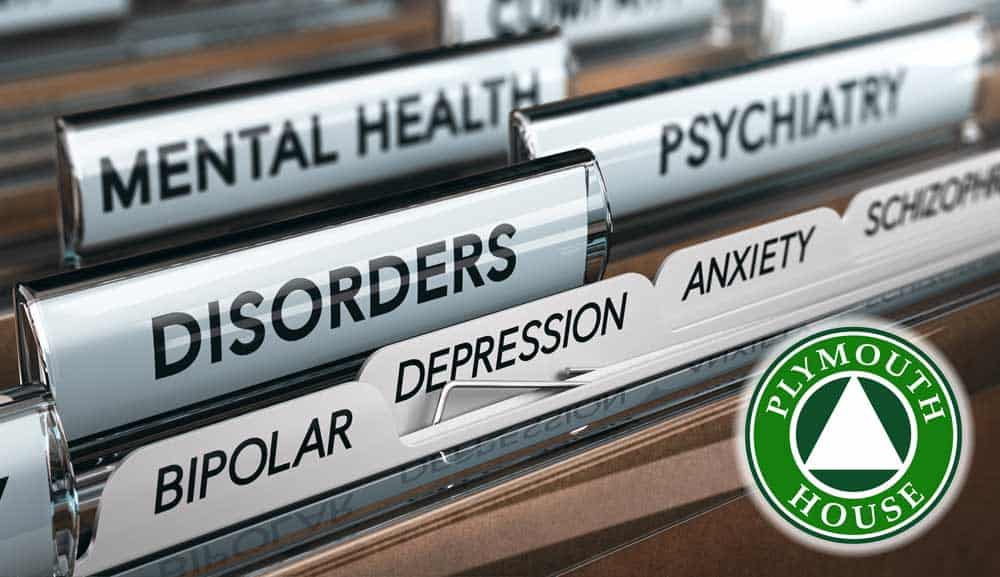Addiction Therapy
What is Dual Diagnosis Treatment?
An individual who is struggling with a dual diagnosis disorder is suffering from a mental health condition and substance abuse simultaneously.
Dual diagnosis disorders are very common. In fact, around half of the men and women who suffer from a mental disorder will also struggle with substance abuse at least once during their lives, and vice versa. The two conditions exacerbate one another and symptoms will continue to worsen unless both conditions are treated concurrently.
The Relationship Between Substance Abuse & Mental Health
Up until relatively recently, substance abuse disorders and mental health conditions were mainly treated in separate facilities. For example, a person who suffered from depression and alcoholism would need to enter into a psychiatric hospital for their depression to be treated.

Then they might separately attend an addiction treatment program in order for the alcoholism to be addressed. It was soon discovered, however, that addiction and mental illness go hand-in-hand. Either the symptoms of one disorder exacerbate the other, or the symptoms of one disorder initially led to the development of the other disorder.
According to the National Institute on Drug Abuse, multiple national surveys have pointed toward the fact that half of the people who seek treatment for addiction simultaneously struggle with a mental illness, and vice versa. Data shows that there are especially high rates of comorbidity among substance abuse disorders and depression, anxiety disorders, post-traumatic stress disorder (PTSD), attention deficit-hyperactivity disorder (ADHD), borderline personality disorder, antisocial personality disorder and bipolar disorder. At The Plymouth House we offer intensive therapy and medical care for men and women who are suffering from mental health disorders in addition to their addictions.
We Are Here For You
Let Us Help You Heal
Our Drug & Alcohol recovery services are second to none.
Learn how we can help by speaking with one of our Treatment Advisors today.
Why Are So Many People Dual-Diagnosis?
Research shows that comorbidity between mental illness and addiction can develop in three predominant ways.
These ways include:
- Untreated mental illness leads to substance abuse – Many people who struggle with an underlying and unaddressed mental illness turn to drugs and alcohol as a means of self-medication. While some chemical substances might offer temporary relief from psychological symptoms (leading to repetitive use), self-medicating inevitably makes the symptoms more severe over time.
- Some chemical substances lead to the development of mental health conditions – For example, seeing as alcohol is a depressant, a person who drinks to excess for an entire decade is liable to do permanent damage to his or her brain. As the brain and central nervous system grow more accustomed to the presence of alcohol, the brain becomes unable to produce as much serotonin or dopamine, ultimately leading to depression over time.
- People with certain underlying risk factors are more susceptible to both addiction and mental illness – For example, people who experienced significant childhood trauma are more likely to develop a mental health condition and a substance abuse disorder as a direct result. Other risk factors include consistently high stress levels, genetic predisposition, environmental influences, compromised cognitive development and epigenetic influences.
Because rates of substance abuse and mental illness are so exceedingly high and because there is such a clear relationship between the two, an integrated approach to recovery is always necessary. All underlying conditions must be treated if long-term sobriety is to be achieved.
Our Drug & Alcohol Treatment Services Include
Our Unique Recovery Program
Our unique program of recovery is deeply rooted in the 12 Steps of Alcoholics Anonymous, intensive therapeutic intervention and comprehensive healing. Our dual diagnosis treatment program offers the same services as our standard residential treatment program, along with several additional services geared toward men and women struggling with an underlying mental illness.
The services we provide include:
- Inpatient rehabilitation – People who are experiencing a dual diagnosis disorder can benefit from a residential treatment setting. Guests have 24/7 access to support staff and health services whenever necessary.
- Medication Assisted Treatment and medication management – Most of our guests who are in our dual diagnosis program are also taking some type of antipsychotic medication. We offer medication management services to ensure that medications are being taken on time and exactly as prescribed by a medical professional.
- Intensive psychotherapy – We offer individual therapy sessions with a licensed therapist as well as group therapy sessions that take place on a daily basis. Psychotherapy is a fundamental component of every effective dual diagnosis treatment program.
- Supportive residential housing – Living among like-minded individuals in a residential setting is extremely beneficial to those struggling with dual diagnosis disorders.
- Dual-diagnosis recovery support groups – People who are dealing with a dual diagnosis disorder might feel as if they are alone in their experiences. They might feel socially isolated and as if no one can relate to what they are going through. We offer dual diagnosis group workshops so that our guests can relate to one another on a deep and authentic level, offering peer support and learning how to communicate their needs and feelings in healthy, effective ways.
Begin Healing Now!
Have A Call With One Of Our Treatment Advisors
Don’t Suffer Any Longer
Begin Your Journey of Comprehensive Healing
We understand just how overwhelming it can be to commit to a long-term program of addiction recovery. Major changes are never easy — even when the change is undeniably for the better. Rest assured that we are available to help walk you through every step of the early recovery process. Our experienced Admissions Team will personally work with you from the time of your initial contact, until the day you arrive at The Plymouth House. We know in most cases our guests and their loved ones have a myriad of questions regarding available treatment options, covering the cost of dual diagnosis treatment, our facilities and smoothing out the finer details of the admissions process. With one phone call we will assist families and individuals in making the right choices for their unique situation. Contact us to begin the journey that will change your life.
















